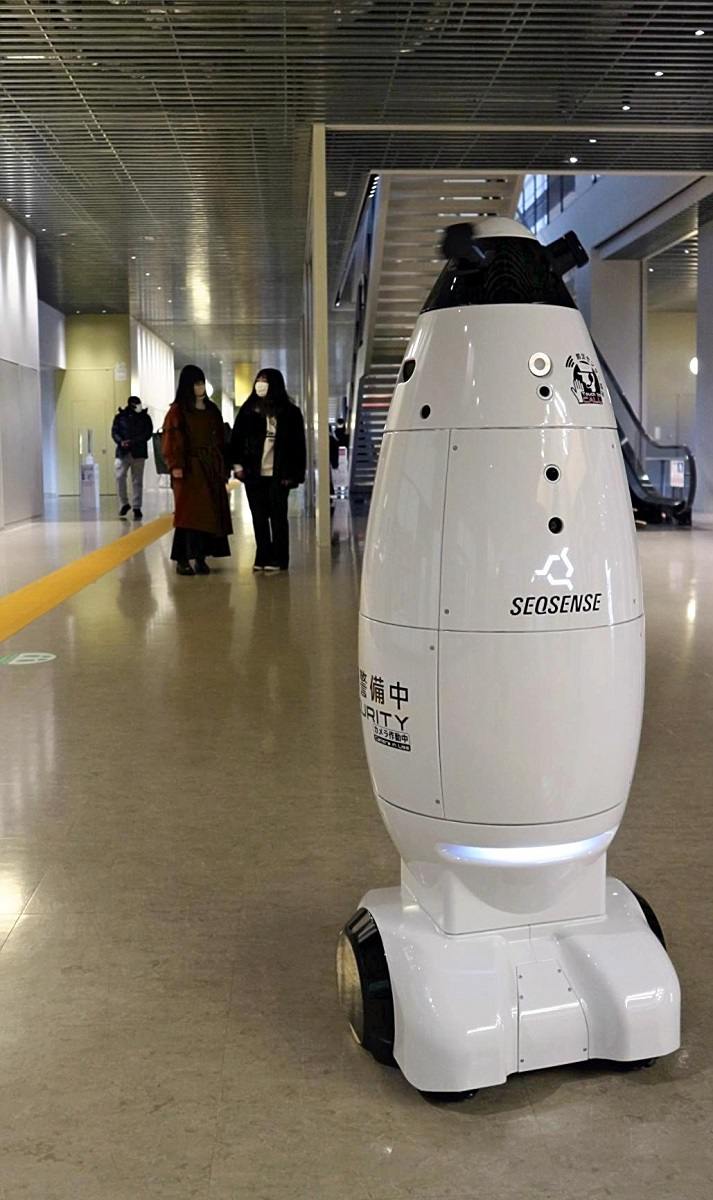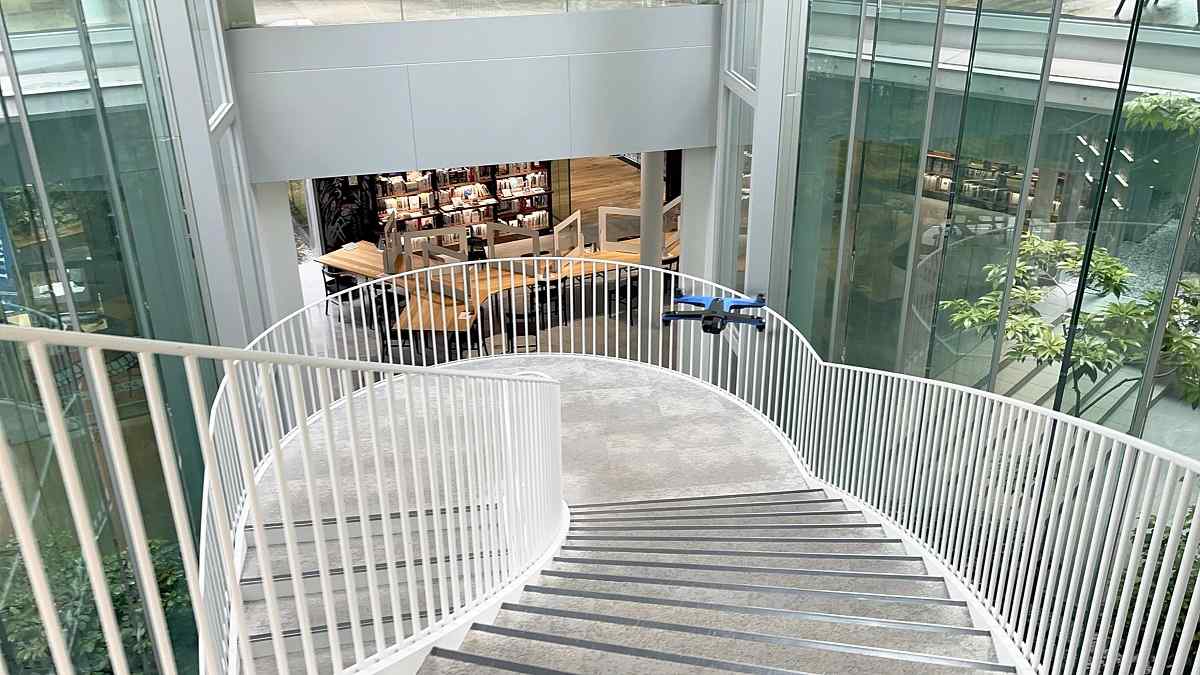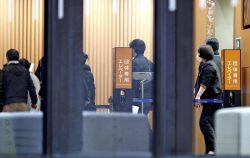
A security robot automatically patrols a building at Ritsumeikan University’s Osaka Ibaraki Campus.
2:00 JST, February 26, 2023
Universities are preparing to implement robots, artificial intelligence and drones to help with campus security as there have been several serious incidents resulting in injuries.
Universities have become more vulnerable as they are expected to allow the public onto their campuses, so attention is now being paid to see how effective the latest technology is in quickly detecting suspicious activity and ensuring safety.
Ritsumeikan University introduced a 1.3-meter tall egg-shaped patrol robot in 2021. The robot, which runs automatically, helps secure the Osaka Ibaraki Campus in Ibaraki, Osaka Prefecture, as it glides across the first floor of a building while avoiding people and pillars.
The robot patrols the building at 1.4 kph for about 2 hours twice a day while taking 360-degree images of its surroundings. Even when it is not patrolling, it is constantly scanning the area, except for when it is charging.
“When I’m on campus studying until late in the evening, it makes me feel a little safer to see the robot, even if I don’t see anyone else on campus,” said a 21-year-old female student.
The campus has also been testing out AI-equipped surveillance cameras since December. When the cameras detect unusual behavior, such as violent acts or trespassing, the campus security control room is immediately notified. It has been reported that the system detected someone entering an area that was off-limits on campus.
Human security guards are also patrolling the campus.
“[The new tech] might be able to monitor areas that we can’t thoroughly check,” said a 43-year-old campus security guard.
Many universities allow local residents to freely enter their campuses, including their restaurants and other facilities, as the government has positioned universities as community institutions.
However, as campuses generally cover a large area, it is difficult for human guards to patrol the entire university. There is also the issue of aging campus security.
There have been several incidents around university campuses, including test-takers being stabbed in front of the University of Tokyo on the day of the Common Test for University Admissions in January 2022, as well as Shinji Miyadai, a sociologist and professor, being attacked at a Tokyo Metropolitan University campus in November.
“AI and robots can significantly cut costs compared to hiring one security guard,” said a Ritsumeikan University official. “We would like to create a safer campus by combining the latest technology [with conventional manpower].”
Kindai University is considering implementing the use of drones. In spring 2021, the university conducted a demonstration of a drone recording video while flying in and out of buildings at its main campus in Higashi-Osaka, Osaka Prefecture.
Currently, the drone still requires a person to operate it. However, the university hopes to utilize it on campus if it can operate automatically and avoid such obstacles as stairs, pillars.
“The pandemic has increased the workload for campus security, including requiring them to check the temperatures of those entering campus and making sure they disinfect their hands before entering,” said a Kindai University official. “It is time to consider using the latest technology. It also helps make up for a shortage of security personnel.”

A drone flies up a set of stairs at Kindai University’s Higashi-Osaka campus in April 2021.
Top Articles in Society
-

Producer Behind Girls Group XG Arrested for Cocaine Possession
-

Man Infected with Measles Reportedly Dined at Restaurant in Tokyo Station
-

Man Infected with Measles May Have Come in Contact with Many People in Tokyo, Went to Store, Restaurant Around When Symptoms Emerged
-

Woman with Measles Visited Hospital in Tokyo Multiple Times Before Being Diagnosed with Disease
-

Australian Woman Dies After Mishap on Ski Lift in Nagano Prefecture
JN ACCESS RANKING
-

Japan PM Takaichi’s Cabinet Resigns en Masse
-

Japan Institute to Use Domestic Commercial Optical Lattice Clock to Set Japan Standard Time
-

Israeli Ambassador to Japan Speaks about Japan’s Role in the Reconstruction of Gaza
-

Man Infected with Measles Reportedly Dined at Restaurant in Tokyo Station
-

Videos Plagiarized, Reposted with False Subtitles Claiming ‘Ryukyu Belongs to China’; Anti-China False Information Also Posted in Japan





















